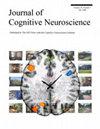Performing a Motor Action Enhances Social Reward Processing and Modulates the Neural Processing of Predictive Cues
IF 3.1
3区 医学
Q2 NEUROSCIENCES
引用次数: 0
Abstract
Associative learning affects many areas of human behavior. Recently, we showed that the neural response to monetary reward is enhanced by performing an action, suggesting interactions between neural systems controlling motor behavior and reward processing. Given that many psychiatric disorders are associated with social anhedonia, a key open question is whether such effects generalize to social rewards, and in how far they affect associative learning. We developed a novel task in which participants (n = 66) received social reward feedback and social punishment either by pressing a button or waiting. Predictive cues were linked to feedback valence with 80% accuracy. Using EEG, we measured the neural response to both predictive cues and social feedback. We found enhanced reward positivity for social reward preceded by an action, and an enhanced N2 for cues predicting negative feedback. Cue-locked P3 amplitude was reduced for cues associated with negative feedback in passive trials only, showing a modulation of outcome anticipation by performing a motor action. This was supported by connectivity analyses showing stronger directed theta synchronization, in line with increased top–down modulation of attention, in active compared with passive trials. These findings suggest that actively obtaining social feedback enhances reward sensitivity and modulates outcome anticipation.执行一个动作会增强社会奖赏处理并调节预测线索的神经处理。
联想学习影响着人类行为的许多方面。最近,我们的研究表明,神经系统对金钱奖励的反应会因执行动作而增强,这表明控制运动行为和奖励处理的神经系统之间存在相互作用。鉴于许多精神疾病都与社交厌恶症有关,一个关键的悬而未决的问题是这种效应是否会扩展到社交奖励,以及它们在多大程度上会影响联想学习。我们开发了一项新任务,让参与者(n = 66)通过按下按钮或等待来接受社会奖励反馈和社会惩罚。预测线索与反馈价值的联系准确率为 80%。通过脑电图,我们测量了预测线索和社交反馈的神经反应。我们发现,在行动之前的社会奖赏会增强奖赏积极性,而预测负反馈的线索会增强 N2。只有在被动试验中,与负反馈相关的线索锁定 P3 振幅才会减小,这表明执行动作会调节对结果的预期。连通性分析表明,与被动试验相比,主动试验中的定向θ同步性更强,这与自上而下的注意力调节作用增强相一致。这些研究结果表明,主动获取社会反馈会增强对奖赏的敏感性并调节结果预期。
本文章由计算机程序翻译,如有差异,请以英文原文为准。
求助全文
约1分钟内获得全文
求助全文
来源期刊
CiteScore
5.30
自引率
3.10%
发文量
151
审稿时长
3-8 weeks
期刊介绍:
Journal of Cognitive Neuroscience investigates brain–behavior interaction and promotes lively interchange among the mind sciences.
文献相关原料
| 公司名称 | 产品信息 | 采购帮参考价格 |
|---|

 求助内容:
求助内容: 应助结果提醒方式:
应助结果提醒方式:


